We had had a full day at Jazz Fest and were exhausted as we sat among 30 or so fellow Treme followers, faithfully keeping our appointment to keep an eye on how our self-portrait was coming along, dinners in our laps, in the front room of Bywater’s Country Club.
The experience was far different from any of Treme I’d ever seen before.
It’s a received wisdom that radio is an intimate medium. There’s something very one-on-one about how radio works. A show host who understands the medium, even though speaking to thousands across the broadcast area, can make each listener feel as if it is pillow talk.
Television and video, especially dramatic fiction, on the other hand, are just the opposite--perhaps because viewing is a more passive act than imagining things that are suggested through the ear. Special effects, the turbo engine of cinema box office, in my view, are hardly ever as powerful as the stuff that we conjure up almost every night in our own heads as we dream.
So it was somewhat of a surprise, watching Treme for the first time in a room full of people, to see how untrue these truisms are for Treme. What I discovered was that, at least for me, the series translates very poorly as a public event. I thought back to watching all the previous episodes in the privacy of my home, and it was just way different.
Perhaps it has to do with how the “story” is told in Treme. One of the fundamentals of jazz is that you take a melody and break it down, sometimes beyond recognition to those unfamiliar with the chord progressions. It seems to me, that’s exactly how David Simon tells his stories--through character development, through exquisite visuals, certainly through the music. Not through the plot line.
Maybe that’s why it is so appropriate that Treme is so heavily dependent on music to move its message. Maybe that’s why David Simon is so attracted to telling the story of New Orleans in the first place, since New Orleans is nothing if not about the music.
As we prepared to enter the viewing room, my good friend Tom Mara, GM of Seattle’s KEXP-FM, confessed to not having seen Treme before, wanted to know, “What it’s all about?” The local cognoscenti in our group winced at his question and smiled all-too-knowingly. This is the one question I imagine David Simon loves the unsuspecting to stumble into. Like asking what a Zen koan means. The answer to a koan only points, hardly ever gives you what the question seems to want: easy, schematic closure that lets you move on quickly to the next question. Sometimes there is no answer. Sometimes, the question is the answer.
Because “what’s it about?”, though perfectly reasonable, is somewhat to the side of the question that might be more relevant: “What is the value of Treme?”
Value, a higher order of meaning, like jazz, derives from the treatment, you could even say the deconstruction, of the story (melody) line, the “about” in the question, “What’s it about?”
But of course “what it’s about” is what those habituated to mass-media consumption expect, and Simon’s been promising to provide more story development in this season’s Treme.
Indeed, it seemed to me that we did get longer exposition, such as those passages of activist attorney Toni Bernette (Melissa Leo, but for us in New Orleans, the real life Mary Howell) pushing Lt. Terry Colson (David Morse) for more information about one of what were many, many unresolved murder reports. Simon is laying the predicate for what promises to be a major statement on the Danziger Bridge incident. It is a necessary passage, the kind that we see all the time in dramatic plot lines. It’s the stuff I always see in the movies. But, for me, seeing Treme for the first time in the theater-like setting of the Country Club viewing room, this is exactly the moment when Treme started to bore me. It was becoming ordinary.
Perhaps this is the reason why Simon’s ouvre is so successful in the DVD format. There is a contrapuntal rhythm to the way he edits story line, so unlike the ready-made comic-book approach that most who work in video employ when telling you what their story is “about.” (I think of Robert Altman or Federico Fellini, but I’m way beyond my ken here.) The way the monkey-mind flits from association to association--so interior, so intimate that way.
Anyway, the highlight for me, was a 20 second cameo in which Sonny, the wanna-be musician who couldn’t possibly be from New Orleans, wandering into an instrument shop very evocative of the New Orleans Music Exchange, and this 9-year old black (actually a beautiful, glowing brown) kid sitting before a perky red-framed keyboard of some sort, riffing on Professor Longhair and giving the wanna-be this look of “look how easy it comes to me” as he effortlessly rolls through some highly sophisticated rhythmic tropes from Henry Roland Byrd’s legacy.
Well that scene, all by itself, is a high-value moment (of many) for me. Don’t ask me to ‘splain all the reasons. I know it evokes in me hope, regeneration, a cultural continuity that won’t be denied no matter what assaults are mounted by the American Corps of Engineers and Bureaucrats. That look, that music, that scene. Thank you, thank you, thank you Treme.




















Comments
Watching Treme: A Solo Activity?
I totally get watching Treme alone. I live in Florida, and there's no one else in my circle as into the New Orleans culture as I am. Therefore, I prefer to watch my season 1 DVDs, as well as season 2, by myself. I don't want to give anyone the opportunity to criticize the show in my presence. It's too personal. I'm an open-minded person, but there are some things in life that I don't want to discuss with people of differing opinions.
Solo Treme
I totally get what you're saying. I think that Treme is one of the FINEST shows in the history of TV. While I welcome discussion about episodes I have no desire to try to convince anyone of the brilliance of this show. You either get it or you don't.
One thing that caught my attention in the first season were the setups between blacks and whites and my anticipation of seeing resolutions just like we always see on TV- white racists, black victims. But the writing of this show is so much more respectful to the characters of both races, therefore, dialogue and plots are always surprising me and the writing here much more interested in developing the humanity of the characters.
I love this show. And love watching it alone.
New Orleans wanna-be's
Where Y'at David (Freedman and Simon)?
I was also struck by the scene of Sonny being upset by the kid playing Fess far better than Sonny could ever hope to. In the 21 years that I've been spinning discs on 'OZ I've seen/heard countless musicians from 'somewhere else' try to capture the 'New Orleans sound'. Sadly, they fall short of the mark 98% of the time. (Even after Katrina, when every songwriter in the world sent us their 'Katrina' song.)
What is the secret ingredient that gives it 'that New Orleans sound'? I don't have a clue. But my ears can tell the difference every time. (Well, I do have one clue. I know that Earl King played in the key of 'K' - a mysterious key that music scientists may not discover for generations. But I digress...)
Kudos to David Simon for that 20 seconds. I hope others got it.
And didn't Gentilly Jr. - the doyen of 'OZ Djs - look good on TV?